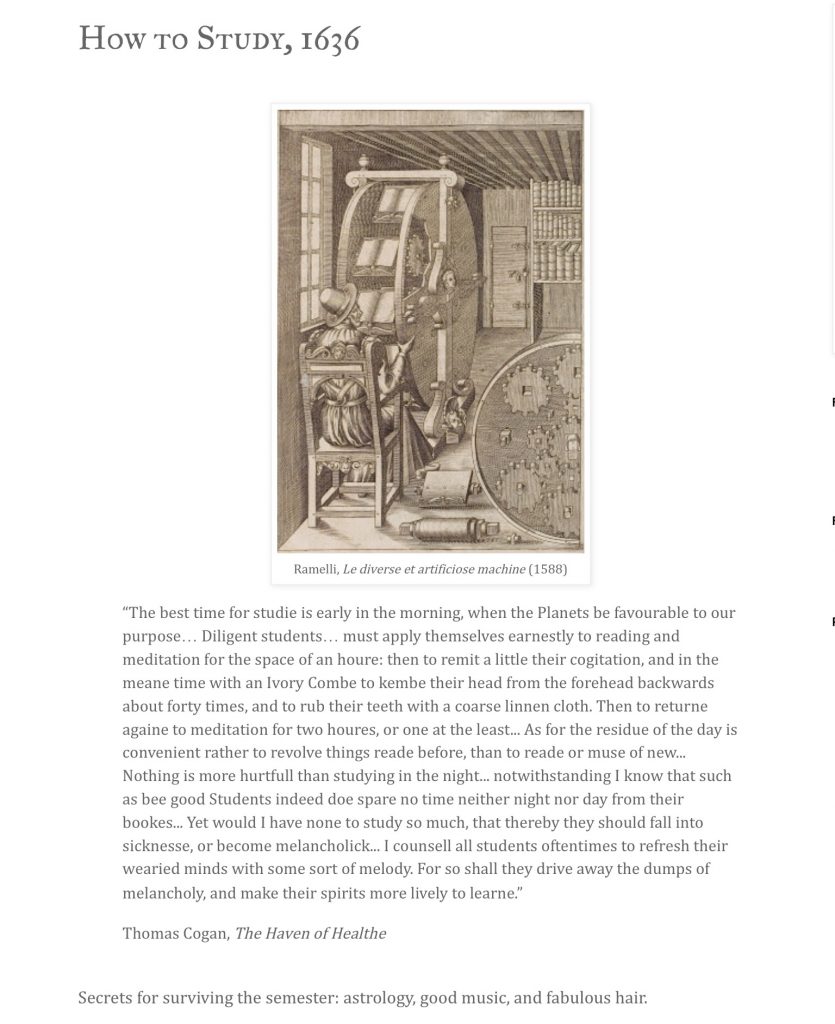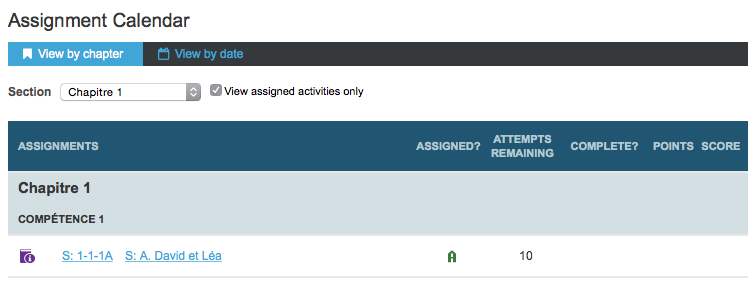LAST UPDATED: 2018-05-08

QUICK NAVIGATION
→ I. Aims and objectives
→ II. Expectations
→ III. Responsibilities
→ IV. Grading criteria
→ V. Plagiarism
→ VI. Late work, extensions, and making up for missed work
→ VII. Missing or rescheduling tests and examinations
→ VIII.Quick links to UBC rules, policies, and procedures
CAVEAT AND PREAMBULATORY FIRST RULE
I. THE CAVEAT
There is a lot of information here below. That is because it is intended to be as comprehensive as possible, in the interest of helping you. There are also links to selected parts of UBC’s rules and regulations (carefully gleaned for pertinence) and to further information sources of and associated with the University: all in all, there is a lot to read. (There may also be Easter Eggs.)
The “search” button and the standard “find” / “spotlight” functionality may be helpful 🙂
You are reminded that students are expected to be cognisant with University rules and regulations: this is part of the contractual agreement every student enters into with the University when they register. The same goes for any course and programme.
“tl;dr” is not a defence, nor an excuse, nor generally acceptable at the university level. This is a good and positive thing because of…
II. THE FIRST RULE: WE ARE ALL MEMBERS OF THE UNIVERSITY
You are responsible intelligent adults. I (O’Brien) expect you to think, act, and communicate accordingly. You should expect me and everyone else you deal with at the University to do so too: this gives parity and mutuality to our academic work and intellectual relations and interactions.
UBC’s motto, tuum est—“it is yours”—is a reminder of what a university is and what universities have been for their long history: a unified scholarly community, with scholars of various sorts—from first-year undergraduate students to senior professors and librarians and archivists—united in the adventure of scholarship. You are as much a part of that as anyone else, with the same obligations of good scholarly citizenship. We all reap the benefits: individually and immediately, and as a larger entity over a longer time.
See further: the Golden Rule (via the Wikipedia) and [update 2017-09-14] the University’s policy on academic freedom:

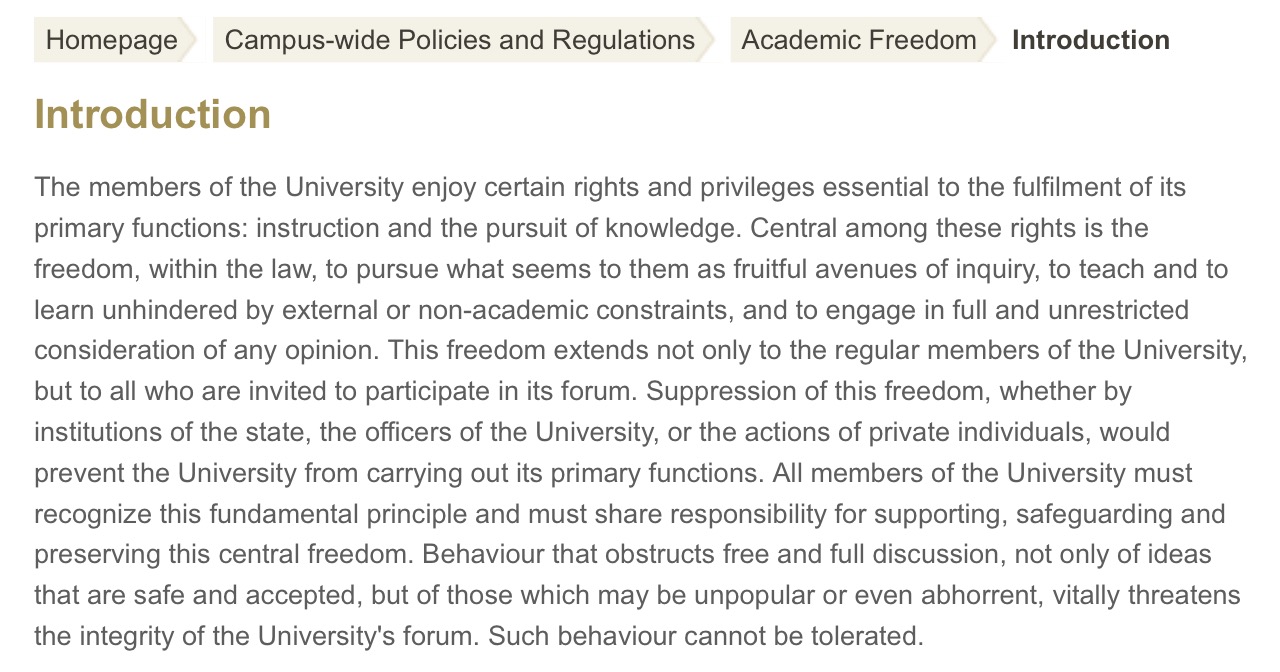

I. AIMS & OBJECTIVES
See also: specifics for this course, in the syllabus.
It/we also hope to provide you with, as a bonus,
- some enjoyment and pleasure
- an awareness of the potential of language and literature to open up other worlds to you, and to provide an infinite resource of comfort and consolation: through “geeking out” with French words, turns of phrase, seeing how the languge is constructed… leading you to different ways of thinking about the world, seeing it from a different perspective.
- = useful life skills, whatever life you choose to lead and wherever life takes you after this course
back to the top
II. EXPECTATIONS
What you should expect from this course:
- an interactive format, that will include some short lectures (= live performance explanation, commentary, and analysis leading up to asking questions so as to open up full discussion)
- discussion, work in groups and individually, intensive writing in a workshop style
- reading, in the full sense:
—reading, rereading, thinking while reading, making notes, rerereading, etc.
- writing, every week:
—most of this will be short; in a variety of forms; intended to be non-traumatic but intensive
- to learn:
—through a combination of lectures, discussion with peers, and your own independent initiative
- to learn to enjoy and maybe even love learning
—(especially via linguistic geekery)
—for this is what “education” is
—and a major step towards becoming, in the longer term, “educated” and a philologist and/or philosopher
- to have—it is seriously and strongly hoped—some fun
back to the top
III. RESPONSIBILITIES
(In proper 18th-century social-contract style.)
You will be expected to:
- attend class:
—regular attendance is expected of all students
—unexcused absences and late arrivals will drastically affect your final grade
—attendance is one of your obligations as a UBC student: UBC Policies and Regulations > Attendance
- be courteous, respectful, and tolerant of others:
—generally behave in a decent civil adult human way
—know and act in accordance with, University and other applicable rules (ex. the law); and be familiar with principles of justice and fairness, and their application to everyday life
—before speaking or acting, consider the consequences and think of your fellow students (and their possible reactions and sensitivities)
—think, similarly, of other fellow human beings such as faculty, student TAs, and staff: remember that your instructor is a person too
- bear in mind that your instructor has limits:
—An instructor can only do for one student what they can also do for every other student in the class/course; and they cannot do something for one student that they could not also do for every other student (ex. individual tutoring). This may mean making decisions that go against a student’s individual self-interest, when acting in the interests of the greater good.
—There are some times when your instructor will not be accessible and available. Instructors (and coordinators, and other faculty) are not customer-service-bots. They will be unable to read and answer emails while doing other work that requires concentration: ex. while teaching you, preparing your classes, and marking your work.
—Instructors are humans and need to rest (evenings, nights, weekends, public holidays, midterm break, and when the university is closed), the better to work with you. Respecting your instructor as a human is therefore also in your own interests.
- work and be attentive:
—attend class in an active, attentive manner
—switch off electronic devices in class at certain times, when asked to do so in the interests of an attentive working environment for the common good (= for you, your fellow students, and your instructor).
Reasons why: Anne Curzan, “Why I’m Asking You Not to Use Laptops.” Lingua Franca: Language and Writing in Academe. (The Chronicle of Higher Education , 2014-08-25).
Individual instructors’ policies on the use of electronic devices in the classroom will vary.
Exception: if you need to use a laptop, or if you are using one to help another student, for bona fide Access & Diversity reasons
Individual instructors’ policies on the use of electronic devices in the classroom will vary. (O’Brien policy: you may use any devices you wish and you may record my class—audio only—for educational purposes, and not for sharing outside this class or for sale.)
—think and ask questions
—be interactive:
participate and contribute, this contributes to part of your final grade (ex. quizzes in FREN 101)
—prepare for class:
have the requisite texts, and have read (and in most cases reread) them in advance
—complete the required assignments
—do so without cheating or other low, disreputable, underhand, unethical, or illegal means
—do so in a timely manner:
late work will be penalized, and will not be accepted at all once it is a week late; individual instructors’ policies may be stricter still. Late work covered by medical or other acceptable official certification is another matter and discussed further in VII. Late work, extensions, and making up for missed work (further down).
- communicate (and be communicable):
—check your email (the account you have on record with UBC) frequently, and check this site regularly
—keep your email contact information up to date with UBC IT;
this is also one of your obligations as a UBC student, as per Student Declaration and Responsibility
—courteously:
Ex. 1: Debrett’s on email etiquette and on the conventions of written correspondence.
Remember that email is closer in form to the traditional letter than it is to the text message: be that personal, professional, academic, or in any other area of communicative interactivity.
Ex. 2: the Emily Post Institute: Email etiquette Dos & Don’ts and Further advice on email and texting
—communicate in a timely fashion
with your instructor (or the coordinator, if appropriate) if you are absent, ill, suffer a mishap, and/or—especially—if this will impact on the due handing in of work or sitting of examinations
—exercise consideration and common sense:
bear in mind that your instructor and the coordinator will not be reading or able to respond to emails received while they are teaching; nor immediately before it starts because they will be doing pre-class preparation, walking to class, and setting up; and not while conducting quizzes, tests, and examinations.
—NB: PLEASE INCLUDE YOUR COURSE + SECTION IN YOUR EMAIL SUBJECT LINE (ex. FREN 101-101)
(otherwise your email will go into a general inbox and be read later; it may even land and malinger in spam)
- one final responsibility: you will be expected to try very hard to have a generally positive and sunny outlook, and to be of a cheerful disposition
AND IN RETURN…
Your instructor promises to
- be courteous, respectful, and tolerant of others
—(as above, the same rules for all of us)
—be fair and just and humane, to all students
—apply principles of justice and fairness:
An instructor can only do for one student what they can also do for every other student in the class/course; and not do something for one student that they could not also do for every other student. This may mean making decisions that go against a student’s individual self-interest, when acting in the interests of the greater good.
- be attentive:
—listen
—be open to questions and requests for further explanations
—be patient, non-judgmental, encouraging, kind, and sympathetic
- work:
—in class: to participate and be prepared
—comment on, mark, grade, and return your work in a timely manner (usually around 1-2 weeks after that work’s submission; times may vary depending on your instructor’s other work, about which your instructor should keep you informed as necessary)
—mark justly and fairly, in the same way for all students
—include useful and constructive comments as needed
—hold weekly office hours (usually one hour per course)
—make time to go through corrected work with students, in office hours or by appointment
- communicate with you:
—in a timely fashion on any matters pertaining to the course:
for example, composition topics will be emailed between one and two weeks before their due date
—read email regularly in usual working hours in term:
Monday to Friday from 9:00 a.m. to 6:00 p.m. (except when incompatible with work, ex. while preparing classes, teaching, and marking)*
—respond to your emails as soon as possible; usually within a couple of days (but if you email between Friday evening and Sunday evening or on public holidays or outside term: then on the next working day), sooner depending on the urgency of the matter*
- try very hard to have a generally positive and sunny outlook, and to be of a cheerful disposition
* These are the course co-ordinator’s email policies: in multi-section courses such as FREN 101 & 102, email policies may vary from instructor to instructor. Please check with your instructor.
AND ALSO:
There are “Golden Rule / good behaviour” rules that apply to all UBC employees. If you are a teaching assistant, research assistant, or other student worker, this includes you. WorkSafeBC also applies to UBC employees, and indeed to all workers in all workplaces throughout British Columbia, so it’s worth knowing about, for everyone:
→ UBC information on preventing bullying and harrassment
→ UBC Respectful Environment Statement
→ other pertinent UBC policy documents and links to WorkSafeBC resources
back to the top

IV. GRADING CRITERIA
- Your final grade may be calibrated / adjusted to comply with department, faculty, and university grading guidelines:
- Please don’t cheat. It’s not good, it’s not nice, and it’s no fun for anyone.
A note on marking (for everyone, students and instructors alike). Marking scales should be used fully (0-100%): not “relative to perfection,” nor “in comparison with a native Francophone,” nor “hazing à la française” ; but also not “being nice to encourage you and because you work so hard and you’re such a decent, pleasant, intelligent human being.”
It is human nature to vary, and so some classes/sections—and indeed whole courses, from year to year—will vary, naturally, in their mean, median, mode, and range; but classes tend to produce a standard normal curve or a Poisson, and a mean somewhere between 67 and 78%. As in all UBC courses, grades may be adjusted/calibrated (including specific assignments: ex. if a test is too hard/easy), but there is no obligation to “curve the grades” (= grade to a bell curve with a predetermined average). (Instructors should apply common sense and judgement, and if in doubt consult the coordinator.)
For compositions / written work with an individual, subjective, creative component:
half of the points = language (“le fond”) :
- the required length
- the correctness of your French grammar and spelling
- the use and variety of sentence structures and vocabulary learned in this course
half of the points = content (“la forme”) :
- the use and variety of sentence structures and vocabulary, used experimentally, ex. complex sentences… even if it isn’t completely correct:
→ stick your neck out: be brave! be bold! be beautiful!
- organization, structure, sense, style, content-material, creativity, and interest:
→ let your hair down: be witty! be wild! be wise!
This next part won’t necessarily be relevant for the specifics of all courses, but it may be useful for your other courses and it’s part of my general “Rules” statement. I’m leaving it in here, just in case.
- See further: guidance and resources for the practical work of writing = originally intended for courses in literature and culture, apposite to all sorts of writing in the humanities, and some generalities are applicable in other fields too
- See even further still: NBBB optional… to see matters from the other side, for examples of what not to do, and out of sheer mischief:
back to the top

This next bit IS IMPORTANT AND APPLIES TO ALL FRENCH—AND INDEED ALL UBC—COURSES!
V. ON PLAGIARISM: IMPORTANT:
Plagiarism robs you of what you think and what you can learn. Avoid it. Please be reminded that your education includes academic integrity. Unattributed use of someone’s else work (book, journal article, newspaper clip, online material, etc) and other demonstrated incidences of plagiarism will result in penalties ranging from an F course grade to expulsion from the university when the incident is reported to the President’s Advisory Committee on Student Discipline.
This is a part of your formal relationship with the University. See further:
Proper citation is of course permitted, actively encouraged, and a vital part of academic work and indeed any intellectual engagement. It is a different beast from plagiarism. Do consult University policies further on this point; if in doubt, contact your professor and discuss with them directly. Here is O’Brien’s full definition, for practical purposes, of what is not plagiarism.
back to the top
VI. LATE WORK, EXTENSIONS & MAKING UP FOR MISSED WORK
- If you miss a class or an assignment, the first thing you should do is talk to your instructor or the coordinator. We are here to help. Extensions or make-up versions may, in certain circumstances, be possible.
- Late work WILL BE penalized. Work will not be accepted once it is a week late. Exceptions: if you have been granted an extension (on which see further below).
- Further particulars may vary from course to course and instructor to instructor. Please consult your instructor to check what their policy is. It may vary from the very liberal (= work accepted up to a week late) to the strict (= no late work accepted at all).
- Students may not do extra work for extra credit; nor may the percentage of marks allotted to any portion of the course be changed
- Some kinds of work of an interactive live kind cannot be redone if they have been missed (quizzes, labs); they may in exceptional circumstances be replaced by an equivalent substitute assignment, to be discussed and agreed with your instructor
= no make-up quizzes or in-class exercises
- Extensions to the due date for an assignment and alternate / make-up versions are subject to negotiation; they are not guaranteed or to be taken for granted; their scheduling is also subject to negotiation, to fit with the student’s, their instructor’s, and the coordinator’s work
- Extensions are ONLY possible if asked for and approved in advance, in writing (email),
AND with supporting documentation (in most circumstances, following University guidelines on what counts)
AND (in most circumstances) liaising with Arts Academic Advising (or other Academic Advising office, if you are in a different Faculty). Your instructor and coordinator can help you here, we work with Advising a lot. You will need to see Academic Advising yourself: this is a good thing because it saves you the time and trouble of seeing every prof for every course…
- Extensions must be discussed in advance, when possible: except for exceptional circumstances such as accidents, of course!
- Don’t hesitate to contact the coordinator, if in doubt just ask!
back to the top

VII. MISSING OR RESCHEDULING TESTS & EXAMINATIONS
On tests (if applicable, ex. this is the case for FREN 101 & 102) and final examinations:
- In certain circumstances (medically-certified illness, etc.) a make-up version can be arranged: this will be a different test or exam from the one sat by the rest of the class
- AND with supporting documentation that you have taken to Academic Advising, and once your instructor has received confirmation from Academic Advising that you had good reason for your absence; ditto for other third parties, in other circumstances, as appropriate: ex. performances, sports competitions, job interviews, etc.
What counts as an acceptable reason for missing and rescheduling a test or exam?
- accident or illness: in most circumstances: see Academic Advising
- short-term illness or other impediment to your coming in to campus (ex. colds, flu, menstruation, migraine): talk to your instructor or the coordinator
- a continuing medical condition: see Access & Diversity)
- a conflict with religious observance
- university business: representing UBC in an artistic performance or a sporting or games competition, debate, Model United Nations, etc.; training, community service, a placement, or a practicum that is an integral part of a UBC course
- personal calamity, bereavement, urgently taking care of a family member, and other human emergencies
- some other situations might also count: don’t hesitate to contact the coordinator, if in doubt just ask!
Supporting documentation: what counts?
- consult your Academic Advising office
- a certificate of illness completed by either the attending Student Health Service physician or provided by a family physician
- religious accommodation
- see also: UBC Policies and Regulations: Academic Concession
- proviso: different conditions may apply if you are registered with Access & Diversity or if you are in the process of requesting a concession, with Academic Advising: then we (= your instructor and the coordinator) liaise with them on appropriate changes to make, working together with them and you, on an individual case-by-case basis
- don’t hesitate to contact the coordinator, if in doubt just ask!
These rights, rules, and responsibilities are in addition to, not instead of, all policies and guidelines as supplied by the University, Faculty of Arts, and Department of FHIS. Some rules may change along the way; this should always be for good reason and be done in a reasonable way.
back to the top

VIII. SOME QUICK LINKS FOR UBC RULES, POLICIES, & PROCEDURES
- student declaration and responsibilities
- academic honesty and standards
- student conduct and discipline
- academic misconduct: cheating, plagiarism, etc.
- student conduct during examinations
- exam policies and accommodations
- UBC grading practices
- viewing marked work: you have the right to come and see your final exam after it has been marked, we keep all final exams for a year (contact the course coordinator to arrange a mutually-convenient appointment to view your exam)
- requesting a review of assigned grade : you have the right to question your final grade, though please bear in mind that your final grade may have been calibrated / adjusted to comply with department, faculty, and university grading guidelines. A first step (in any UBC course) is to contact the course coordinator, and the next step (which can also be done independently: after, as well as, or instead of that first step) would be to make a formal request for a Review of Assigned Standing. This involves faculty (who are not your original instructor) re-marking all your assigned work.
- the Office of the Ombudsperson for Students
→ their overview
→ fairness info sheet, fairness toolkits & other resources
→ their FAQs
- for more help: more FHIS + UBC resources, advising, support, and care
back to the top
Congratulations: you made it to the end of over 3,000 words’ worth of pernicketiness.
It could all have been simpler… yet so very much worse …
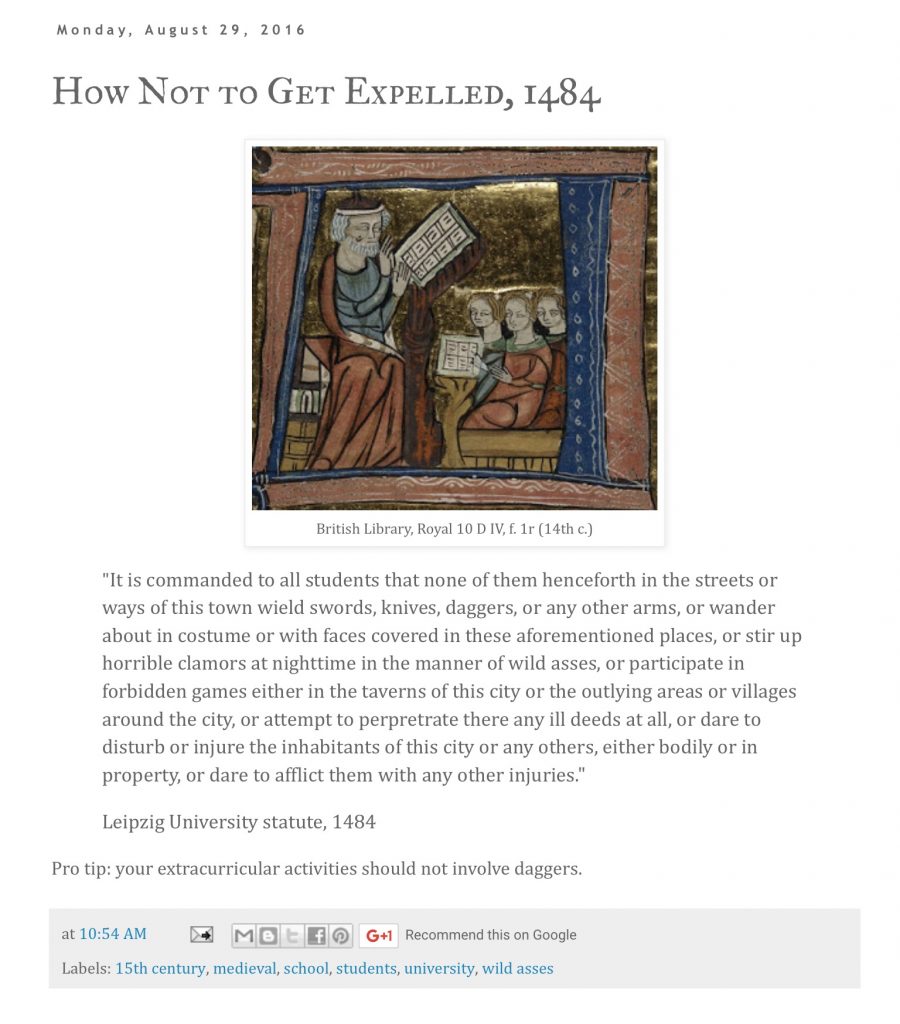 Source: Ask the Past
Source: Ask the Past

There is one very last thing, last but not least, the one rule that rules them all and in the darkness binds them. Remember that your instructor(s) love you. We love everything and everyone that’s part of the great scholarly adventure that is university, and that includes teaching and includes you. We are here because we are curious and constantly marvelling; we find students wonderful and we care about you, about your intellectual development and about you as fellow human beings.
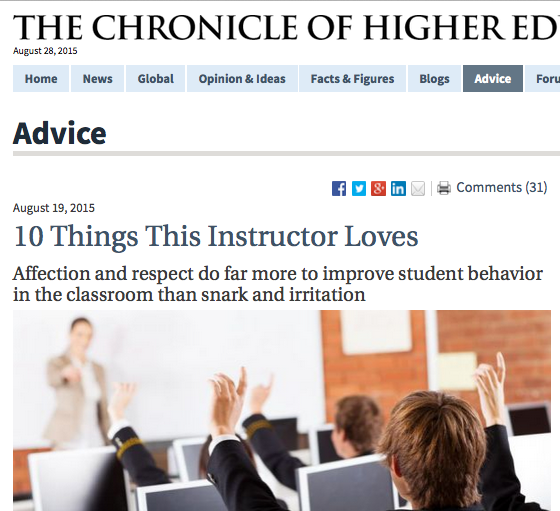
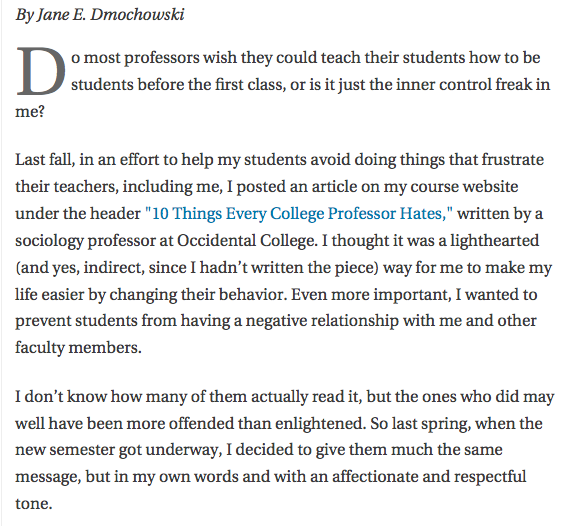
Jane E. Dmochowski, “10 Things This Instructor Loves” (The Chronicle of Higher Education, 2015-08-19): click here to read on, including full details of these “10 Things” …





